Abstract
Of 898 former Far East prisoners of war, assessed between 1968 and 1981, 49 (5.5%) had evidence of persisting symptomatic neurological disease dating back to their periods of malnutrition in captivity. The commonest syndromes were peripheral neuropathy (often of "burning foot" type), optic atrophy, and sensori-neural deafness. Though nutritional neuropathies disappeared soon after release in most ex-Far East prisoners of war, in some they have persisted up to 36 years since exposure to the nutritional insult.
Full text
PDF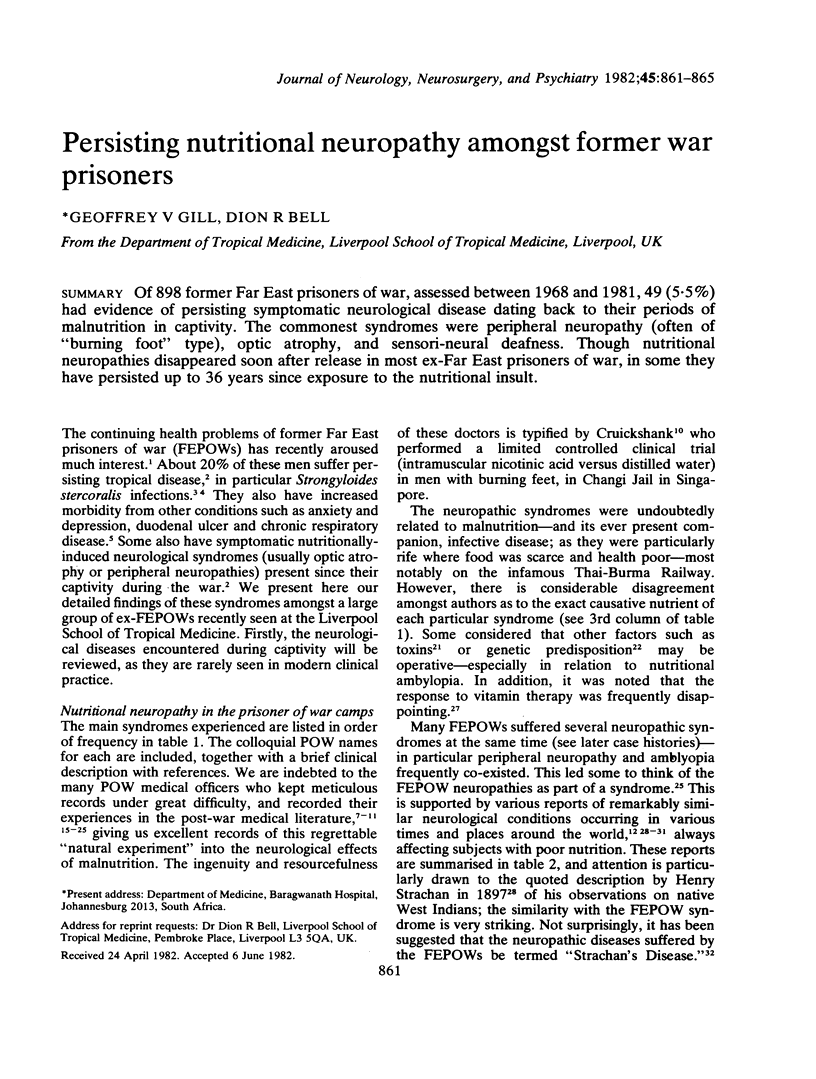
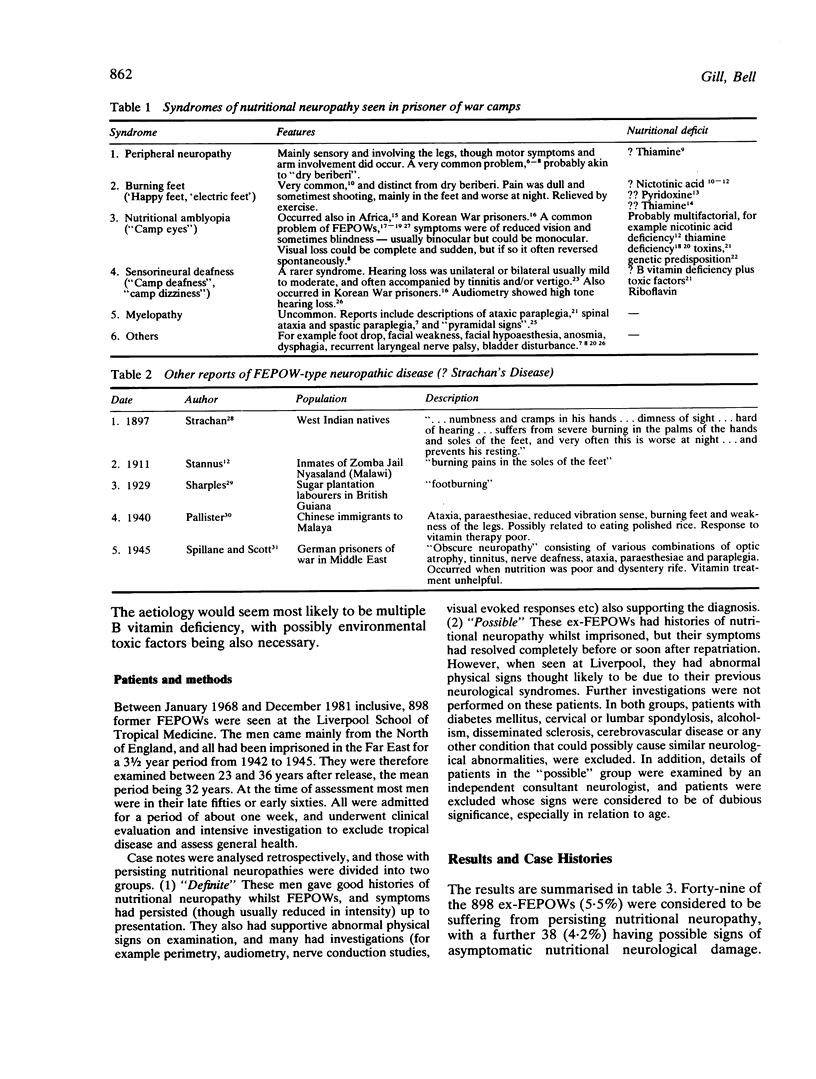
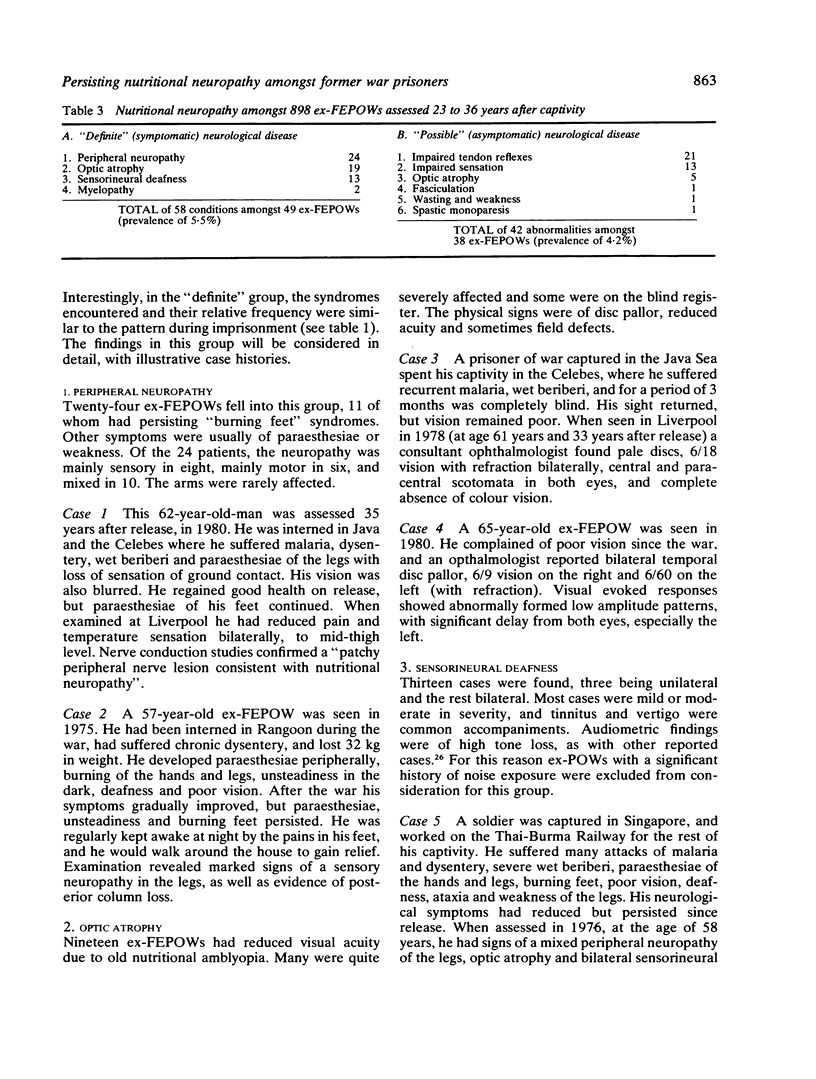
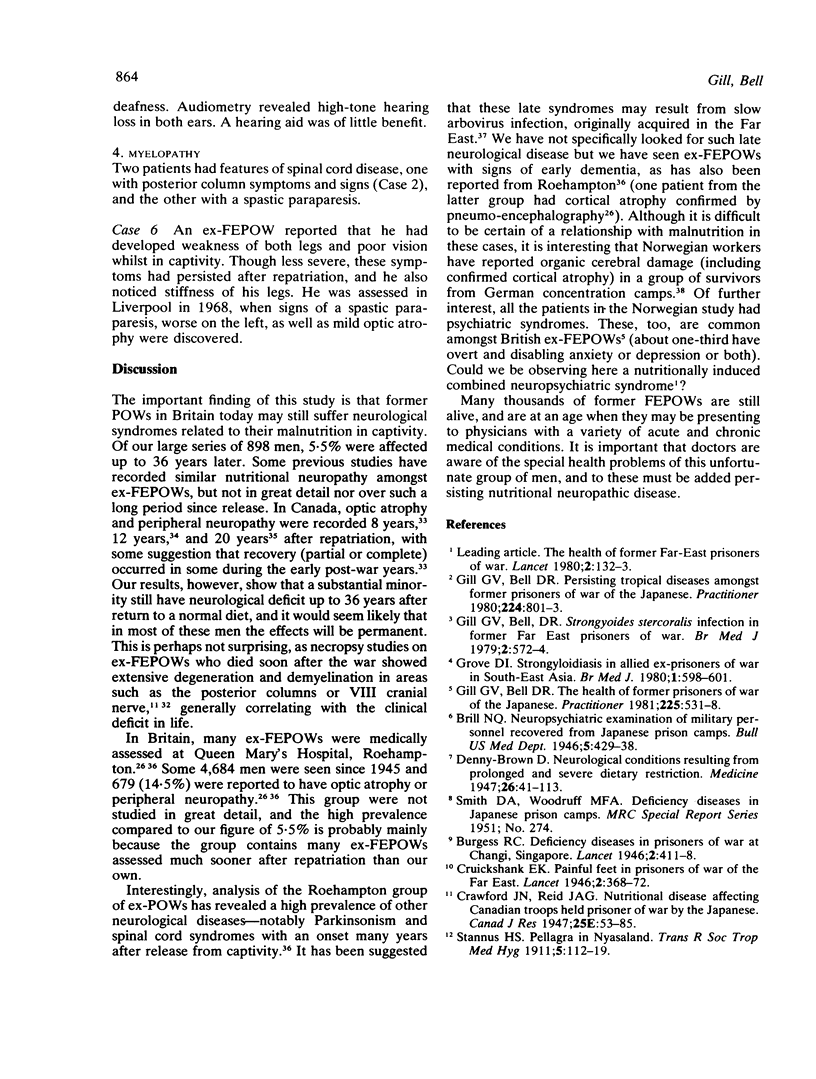
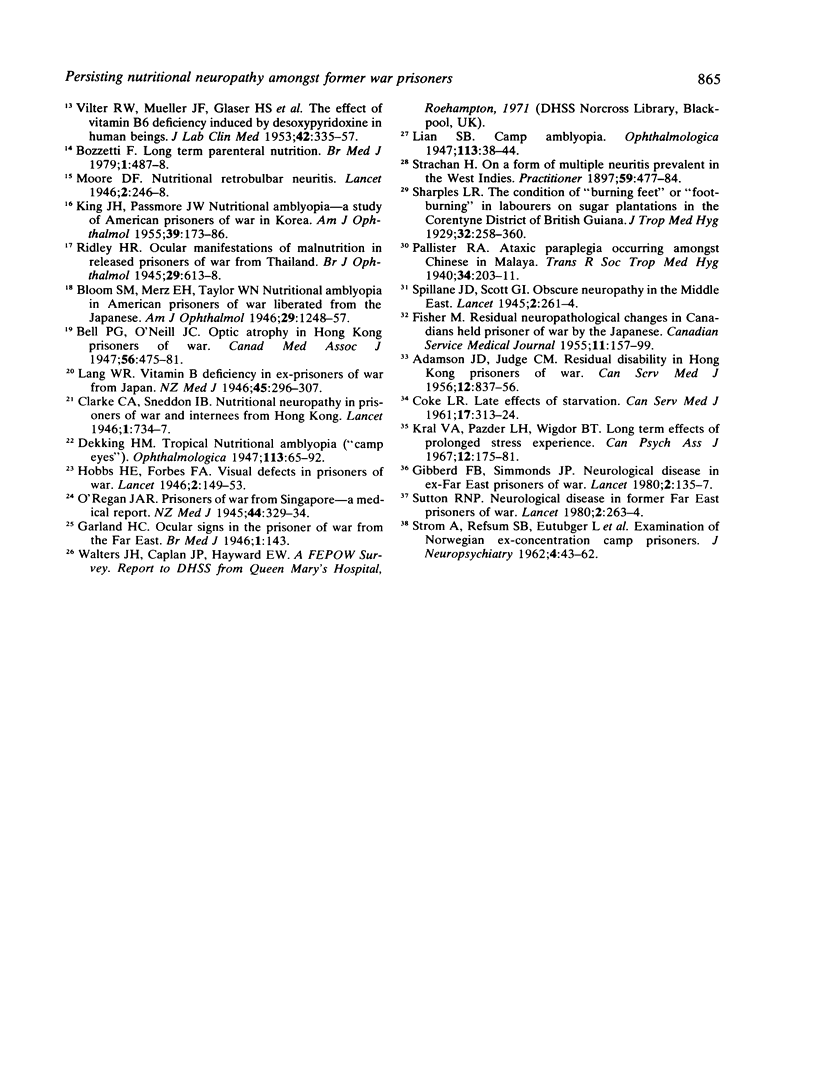
Selected References
These references are in PubMed. This may not be the complete list of references from this article.
- ADAMSON J. D., JUDGE C. M. Residual disability in Hong Kong prisoners of war. Can Serv Med J. 1956 Nov;12(10):837–850. [PubMed] [Google Scholar]
- BELL P. G., O'NEILL J. C. Optic atrophy in Hong Kong prisoners of war. Can Med Assoc J. 1947 May;56(5):475–481. [PMC free article] [PubMed] [Google Scholar]
- Bozzetti F. Long-term parenteral nutrition. Br Med J. 1979 Feb 17;1(6161):487–488. doi: 10.1136/bmj.1.6161.487-c. [DOI] [PMC free article] [PubMed] [Google Scholar]
- COKE L. R. Late effects of starvation. Med Serv J Can. 1961 May;17:313–330. [PubMed] [Google Scholar]
- Gibberd F. B., Simmonds J. P. Neurological disease in ex-Far-East prisoners of war. Lancet. 1980 Jul 19;2(8186):135–137. doi: 10.1016/s0140-6736(80)90015-x. [DOI] [PubMed] [Google Scholar]
- Gill G. V., Bell D. R. Persisting tropical diseases amongst former prisoners of war of the Japanese. Practitioner. 1980 Aug;224(1346):801–803. [PubMed] [Google Scholar]
- Gill G. V., Bell D. R. Strongyloides stercoralis infection in former Far East prisoners of war. Br Med J. 1979 Sep 8;2(6190):572–574. doi: 10.1136/bmj.2.6190.572. [DOI] [PMC free article] [PubMed] [Google Scholar]
- Gill G. V., Bell D. R. The health of former prisoners of war of the Japanese. Practitioner. 1981 Apr;225(1354):531–538. [PubMed] [Google Scholar]
- Grove D. I. Strongyloidiasis in Allied ex-prisoners of war in south-east Asia. Br Med J. 1980 Mar 1;280(6214):598–601. doi: 10.1136/bmj.280.6214.598. [DOI] [PMC free article] [PubMed] [Google Scholar]
- KING J. H., Jr, PASSMORE J. W. Nutritional amblyopia: a study of American prisoners of war in Korea. Am J Ophthalmol. 1955 Apr;39(4 Pt 2):173–186. [PubMed] [Google Scholar]
- Kral V. A., Pazder L. H., Wigdor B. T. Long-term effects of a prolonged stress experience. Can Psychiatr Assoc J. 1967 Apr;12(2):175–181. doi: 10.1177/070674376701200210. [DOI] [PubMed] [Google Scholar]
- Ridley H. OCULAR MANIFESTATIONS OF MALNUTRITION IN RELEASED PRISONERS OF WAR FROM THAILAND. Br J Ophthalmol. 1945 Dec;29(12):613–618. [PMC free article] [PubMed] [Google Scholar]
- STROM A., REFSUM S. B., EITINGER L., GRONVIK O., LONNUM A., ENGESET A., OSVIK K., ROGAN B. Examination of Norwegian ex-concentration-camp prisoners. J Neuropsychiatr. 1962 Sep-Oct;4:43–62. [PubMed] [Google Scholar]
- Sutton R. N. Neurological disease in former Far-East prisoners of war. Lancet. 1980 Aug 2;2(8188):263–264. doi: 10.1016/s0140-6736(80)90153-1. [DOI] [PubMed] [Google Scholar]
- VILTER R. W., MUELLER J. F., GLAZER H. S., JARROLD T., ABRAHAM J., THOMPSON C., HAWKINS V. R. The effect of vitamin B6 deficiency induced by desoxypyridoxine in human beings. J Lab Clin Med. 1953 Sep;42(3):335–357. [PubMed] [Google Scholar]


